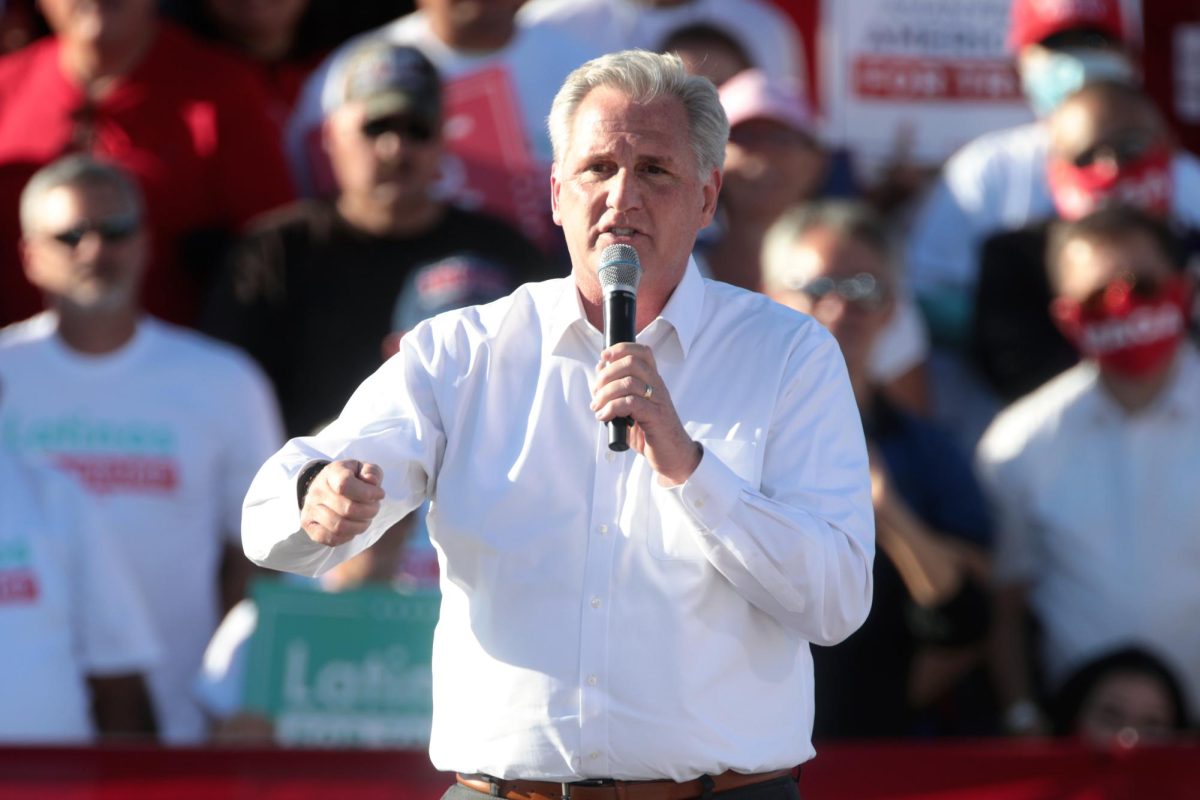Kevin McCarthy was elected speaker of the House of Representatives last Saturday, but many wonder what the consequences of his victory will be.
After taking control of the House in last year’s midterms, Republicans needed to elect a new House speaker for the first time since 2019. For many, the obvious choice was Kevin McCarthy (CA-20), the leader of the House Republican Conference. McCarthy won the Republican nomination, but prior to the vote a group of far-right representatives publicly expressed objections. This opposition resulted in a five-day battle and the most ballots cast to elect a speaker since before the Civil War.
The process of selecting the Speaker is typically expeditious. Every two years, at the beginning of a new Congressional session, a Speaker is elected or re-elected. In order to secure the role, a candidate must acquire 218 votes. If a party only holds the majority by a few seats, everyone in that party must vote for their candidate in order for them to win. However, no rules require that representatives must vote for the candidate nominated by their party. In fact, there is no rule that representatives must vote for a member of Congress at all; Representative Matt Gaetz voted for Donald Trump on the 7th ballot. Representatives can also simply vote “present,” signifying abstention. The more “present” votes are cast, the lower the threshold of votes needed to win becomes.
Opposition to McCarthy’s election was spear-headed by the Freedom Caucus, a group of far-right representatives known for being the most conservative of the House Republicans, includes Rep. Matt Gaetz (FL-1), Rep. Marjorie Taylor Greene (GA-14), Rep. Andy Biggs (AZ-5), the chairman Scott Perry (PA-10), and at least 42 more representatives. The caucus gave McCarthy a list of demands, including requests for specific committee assignments for caucus members, new rules to allow legislation to be reviewed up to 72 hours prior to adoption, specific appropriations, and more. They also delivered an ultimatum — if he did not meet their demands, they would not vote for him.
On the first ballot, McCarthy received 203 votes. On the fourth ballot, he received 201. By the ninth ballot, 20 Republicans still refused to vote for McCarthy. However, the number of hold-outs shrunk as McCarthy gave in to their demands. On the twelfth and thirteenth ballots, only six Republicans maintained their defiant stances. On the fourteenth ballot, two of the hold-outs, Rep.Matt Gaetz (FL-1) and Rep. Lauren Boebert (CO-3) voted “present,” which lowered the threshold of votes McCarthy needed to win to 217, making him only one vote away from success. Finally, on the fifteenth ballot, the four remaining hold-outs voted “present,” which lowered the threshold enough for McCarthy to win with 216 votes.
The struggle to elect McCarthy has posed many questions for Republicans and non-Republicans alike about the future of the GOP and the House. Repubz co-head Theodore Evison ’23 said, “It’s disconcerting that the GOP couldn’t assemble the requisite votes, as it presents a lack of confidence in their ability to fulfill their other obligations. McCarthy’s lack of popularity has damaged the GOP’s reputation to get things done.”
Hotchkiss Political Union co-head Christopher Mitchell ’24 said, “I think these next two years of Congress are going to be unproductive. With all of the promises Kevin McCarthy had to make in order to become Speaker, it is going to be difficult for anything to get done.”






